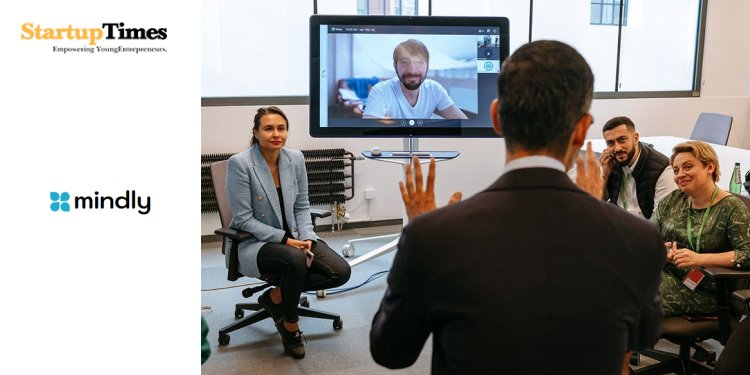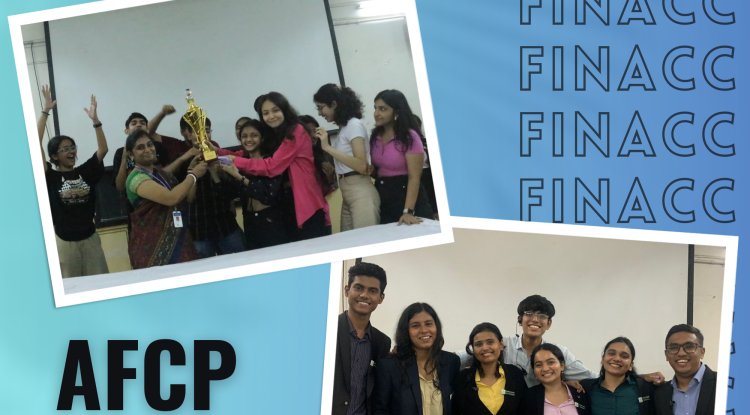Mindly - A mental health startup accessible for all the Ukrainians
The Kyiv-based startup Mindly, which connects patients to licensed therapists via an end-to-end mental health platform for online therapy and offers AI-powered patient care and clinical admin automation, has a newfound wartime mission statement that reads as follows: "We are here to help people find peace."

All Ukrainians should have access to mental health services. The Kyiv-based startup Mindly, which connects patients to licensed therapists via an end-to-end mental health platform for online therapy and offers AI-powered patient care and clinical admin automation, has a newfound wartime mission statement that reads as follows: "We are here to help people find peace."
“In 2021, I started Mindly, a mental health platform for online therapy. After the start of the war, we converted it to make mental health therapy accessible to all Ukrainians, even to those who currently are in dire financial conditions and can’t afford to pay for it themselves,” says Dimitri Podoliev, CEO and co-founder of Mindly. “All the money we make goes entirely to pay for therapy sessions provided to Ukrainians in need who currently can’t afford to pay for it themselves. Our goal is to provide quality therapy which yields results, not just one or two free sessions.”
With over 2,000 startups proliferating in Ukraine pre-war, the country’s tech founders have displayed self-organization under pressure. Startup leaders like Podoliev acted nimbly to pivot business models, adapt IT skills to wartime efforts, and carry out contingency plans for staff to work remotely from basements, bomb shelters, and cars.
“Since the start of war and our wartime pivot, we have more than 3,000 users and have conducted more than 1,000 sessions in the first three weeks. It’s super hard to plan for the year because now we are living day to day and maximum week to week. But by the end of the summer, we have plans to scale to 50,000 users,” adds Podoliev.
Mindly’s provision of wartime therapy at this scale is both impressive and necessary. But how could a startup marketplace for psychologists pivot to pay for thousands of therapy sessions it provides to Ukrainians who currently can’t afford to pay for it themselves?
Pivoting under fire: Podoliev’s plan to bankroll virtual mental health therapy
Podoliev announced the new wartime model on March 12, from Mindly’s satellite office in Warsaw as Poland has welcomed nearly 3 million Ukrainian refugees since the war’s start. The majority of Mindly staff remain in Ukraine, making hybrid use of the startup’s Kyiv headquarters and WFH as ground conditions allow.
“The global flow of donations to Mindly’s wartime therapy campaign has already funded over a thousand of sessions, which were provided free-of-charge to Ukrainians in need,” says Podoliev.
Since the start of the invasion, nearly 12 million Ukrainians have become refugees in neighboring countries or find themselves displaced within their own nation. Mindly’s new market entry into Poland can be considered one more example of Ukrainian startups trying to make the best of an unfathomable reality.
“Entering the Polish market will help us scale and to cover the financial deficit that is created because unfortunately, now many Ukrainians aren’t able to pay for mental health therapy,” adds Podoliev.
Crisis in Ukraine has empowered a network of online mental health experts
Ukrainians’ emergency need for therapy is vast. In a report on the mental health needs of Ukrainian refugees,The World Health Organization, profiled Olga, a 20-year-old medical student who recently arrived at a refugee shelter in eastern Poland, describing mental health distress typical of the millions who have fled.
With extension to Warsaw, Mindly posts great client details
With in excess of 300,000 Ukrainian evacuees currently living in Warsaw alone, the Polish capital and a huge number of new companies who call the Eastern European tech center home will probably assume an enormous part in the post-war monetary recuperation of Ukraine.
On March 29, Google CEO Sundar Pichai met with Ukrainian startup pioneers (counting Podoliev) in Warsaw to report the $5 million Google for Startups Ukraine Support Fund which gives value free money grants and active help redid to assist Ukrainian business visionaries with developing their organizations and reinforce their local area. Likewise, Google for Startups Campus Warsaw gives free work areas to evacuate Ukrainian new businesses and workplaces to nearby NGOs offering lawful and mental help to outcasts.
"Google's Poland group and Google's CEO Sundar Pichai have been incredibly strong and supportive. We are getting colossal help from Endlessly google office in Warsaw, which I should express is among the primary reasons we're focusing on Poland as our most memorable unfamiliar market," says Podoliev who notes Mindly got $100,000 in non-dilutive money, item backing, and Google Cloud credits as a component of the help reserve.
In October 2021, Mindly was chosen for a unique companion of Google for Startups Accelerator: Europe zeroed in on medical services and health new businesses on the landmass. "If not for the amazing Google for Startups Accelerator program which Mindly was lucky to partake in toward the finish of 2021, Mindly would have likely not been here today," says Podoliev. "On the off chance that we can get tutors and experienced individuals free of charge, that is essentially as great as, while possibly worse, than just cash alone."
Before Mindly, Podoliev constructed an organization of startup gas pedals across Eastern Europe
In the span of 48 hours of the intrusion, Podoliev collected a fintech group and laid out a protected site to assist the Ukrainian National Bank with raising more than 11 million euros in monetary help.
Gathering a worldwide fast reaction group fell into place without a hitch. The child of a previous Ukrainian representative to Finland, Podoliev was taught in Helsinki, concentrated on designing in Cambridge and MIT, oversaw private value projects for a British speculation reserve, and filled in as the Honorary Consul of Uruguay in Kiev to cultivate respective business relations toward the South American country before helping to establish iHUB in 2012.
A profile of Podoliev's tech organizing endeavors, distributed only weeks before the conflict's beginning, depicted iHub as one of the biggest Eastern European startup hatcheries, assisting business visionaries with tracking down financial backers and acknowledging projects across tech center point workplaces in Ukraine and Moldova.
However Mindly's 2021 send off (at the iHUB HQ in Kyiv) dazed his associates. What did this design and financial backer see in emotional well-being? What's more, how might Ukrainians take to Mindly? Searching out mental medical services remains disparaged due both to social standards and the nation's charged international history.
Planning the eventual fate of mental medical services in Ukraine.
As an organizer, Podoliev codes and works in half breed versatile application improvement, profound brain organizations, AI, and the fate of AI. While not an emotional well-being expert himself, Podoliev is scaling Mindy to consolidate patient wellbeing upgrading AI and ML includes that are ready to change mental medical care in the following couple of years.
"We are at present structuring our most memorable AI highlights," says Podoliev. "Since AI is the main way we can make emotional well-being treatment genuinely open to all. With the lack of qualified specialists, and the generally high costs of treatment meetings, AI can assist with many cases and backing crafted by advisors in such countless ways."
Be that as it may, when Mindly was established, Ukraine was as yet a peacetime country, where looking for emotional wellness help remained slandered. A Yale University concentration distribution last year followed Ukrainians' absence of confidence in the mental framework to the country's previous Soviet rule, when brain science was regularly conveyed as a politically severe device. A new report evaluating Ukraine's psychological well-being circumstance before the conflict, found that emotional well-being issues are the nation's subsequent driving reason for handicap, influencing up to 30 percent of the populace. Also, the continuous Covid-19 pandemic has just expanded the requirement for virtual emotional well-being assets.
In the event that this sounds like a requesting circumstance in which to send off an AI-based psychological wellness commercial center you would be right. In any case, these worldwide evaluations of Ukraine's aggregate emotional wellness likewise uncover a feasible way ahead for Mindly: repressed buyer interest for prudent psychological well-being treatment and a gateway for access that decreases the social disgrace around looking for help. While no playbook exists for scaling during wartime, Podoliev stays hopeful about the job his startup can play in the nation's recuperation, both financially and mentally.
"Clearly we actually need monetary help, since all that we make, we put it towards augmenting for nothing treatment meetings. Presently, that is our fundamental objective. We want media and PR support too, the more individuals we can arrive at the better," says Podoliev. "Mindly is presently in a situation to help many thousands Ukrainians out of luck, and macroly affect the Ukrainian economy and country overall as we win this conflict and start to recuperate and remake our country."













